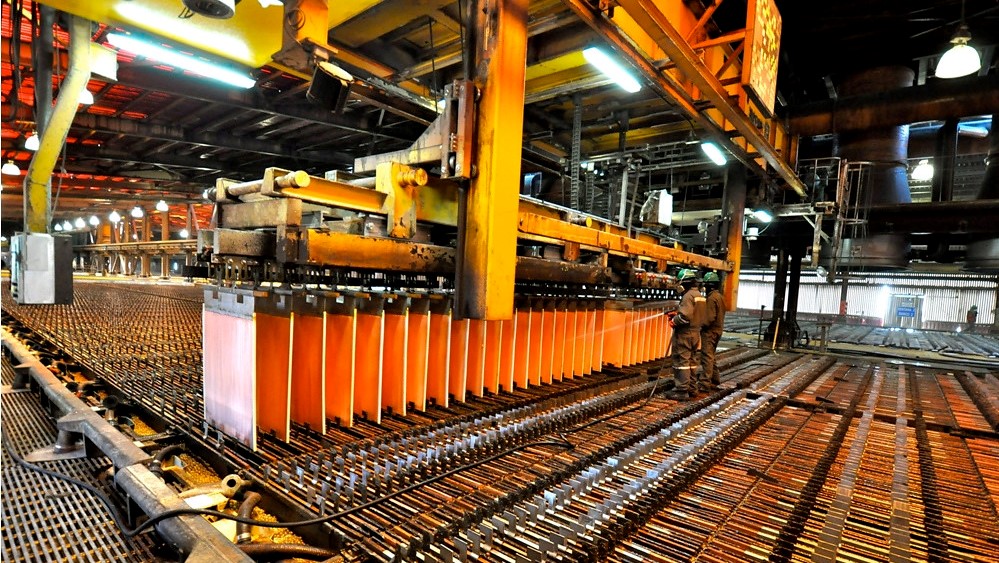Gold mining: Is Turkey a model country?
By Henry Bonner
As Reuters1 reported in January, gold production from Turkey is expected to rise to 36 tons in 2013 from 29.5 tons in 2012. The Turkish Gold Miners’ Association expects to produce 50 tons in 2015. This would put Turkey among the 15 top gold producers in the world. This is impressive — gold mining was negligible in this country as recently as 2000.
Why is this important?
Two of the mines, including the largest Turkish mine in operation, called Kisladag, are owned by Canadian-based Eldorado Gold Corp. A third is owned by Australian company Alacer Gold. These foreign miners have successfully built mining operations in a country that is relatively new to modern-day mining.
Our in-house geologist, Andy Jackson, believes Turkey could hold many other economic gold deposits, and the country could continue to be a very positive contributor to the mining industry going forward.
The geology of the country makes it very appealing, because Turkey is located at an area of stress between tectonic plates – specifically, the African plate is being over-ridden by the Eurasian plate. Especially in the Biga Peninsula, in Western Turkey, prolific volcanism gave rise to a host of epithermal gold deposits, a number of which are in production.
Andy spent time in Turkey in the early 1990s, working as a regional exploration manager prior to joining Sprott Global Resource Investments Ltd.. He recently returned from Turkey – and told me about how it had gone from staunchly anti-mining to relatively mining-friendly as a country.
“The attitude to foreign miners has changed drastically. When we were exploring in Turkey twenty years ago, we frequently faced blockades being put in front of us. They didn’t consider it gold that we were looking for; they considered it ‘Turkish gold.’ And nobody was going to take ‘Turkish gold’ out of Turkey. There was a very nationalistic attitude to gold.
“Environmental groups also attacked potential mining projects. They spread concern among local villages about cyanide use to extract gold. They told villagers in places around the potential mine site that 100 percent of the people in these villages would die as a result of cyanide poisoning.
“But, of course, mines have now been in operation for fifteen years, and people know that this doesn’t hold water anymore.”
The government has also embraced mining. As Umit Akdur, head of the Gold Miners’ Association of Turkey noted, gold exports reduced the current account deficit of Turkey by $1.9 billion in 2012, around 3% of the current account deficit for that year2. As a result the political environment is positive for gold mining.
“The whole attitude of the Turkish government is pro-mining now – which is very encouraging. The mining legislation is sound, very structured, and clear. It doesn’t change regularly — there are probably no tax increases in the cards at the moment. Currently there is a company tax and a 2 percent royalty at the pit.” Royalties at the pit, as Andy explained, are better for mining companies over an NSR (Net Smelter Royalty). The NSR entitles the authorities to take a share of the gold after it has been processed. In Turkey, the government royalty comes before the added expense to the mining company of processing the ore, and thus the amount of profit taken from the miner depends on the profitability of the mine.
Are there problems nonetheless?
International relations are difficult, says Andy.
“The government doesn’t get along particularly well with the Armenians, the Shi’ite Syrian government, or the Iranians.” Tense relations with its neighbors could make trade more difficult.
“Unemployment, I’d say, is their biggest problem right now. They need to reduce it.
“But apart from that, it’s a great exploration venue. There is new mineralization being discovered in areas that had previously been looked at fairly well, because of improved ability of exploration geologists to find gold that is under cover.”
An area of particular interest is the Biga peninsula, which is an area near the Adriatic Sea coastline, in Western Turkey.
“I think Turkey is a very good place to go do exploration right now.”
You can take a look at the photos from Andy’s recent site visit to Turkey, here.
P.S.: View our new Natural Resource Investing Guide with 10 questions to ask before investing in any natural resource play here.
1 Thomson Reuters: “Inside Metals” Community Newsletter. January 11, 2013
2 Reuters online: Turkish economy minister sees 2013 c/a deficit below $60 bln. September 10, 2013
Andrew Jackson joined Sprott Global Resource Investments Ltd. in 2006, and has a background of 35 years in the exploration and mining industry. He holds an M.Sc. in economic geology, is a Fellow of the Society of Economic Geologists and is Series 7 licensed.
Andrew spent 12 years with Billiton / Gencor, becoming Exploration Manager for Southeast Asia, Turkey and North America from 1991-1996. He joined Placer Dome in 1996 and over a period of 10 years with Placer, held the positions of Exploration Manager for Canada, Exploration Manager for North and Central America, and Manager Global Near-Mine Exploration (covering 17 mines worldwide). He also headed a specialized target generation team that targeted very large gold deposits worldwide using advanced geological concepts.
More News
{{ commodity.name }}
{{ post.title }}
{{ post.date }}




Comments
fanny may cartwright
The Adriatic is between Italy and Greece, right? Western Turkey is on the Aegean. Does Mr. Bonner need an Atlas?